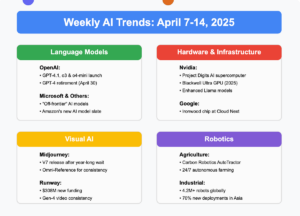Conflicting Perspectives on AI in Silicon Valley
The Competing Visions for AI: Musk vs. Zuckerberg
The ongoing debate between Elon Musk and Mark Zuckerberg highlights two contrasting philosophies regarding artificial intelligence (AI) that could shape the technology’s future. This rift isn’t just a personal feud; it represents broader, fundamental disagreements about how AI should be developed and managed.
Diverging Philosophies in AI Development
Elon Musk and Sam Altman, the CEO of OpenAI, have clashed about the future of AI. Musk criticizes OpenAI’s commercial structure, arguing for more caution in its development. He perceives potential AI risks as dire and existential, which led him to initially co-found OpenAI in 2016 as a nonprofit. Meanwhile, Zuckerberg advocates for a more optimistic view, believing AI can greatly enhance lives. This philosophical divide became more evident when Musk initiated a staggering $97.4 billion bid to take control of OpenAI’s board.
Musk’s warnings about AI dangers have become more vocal over the years. In contrast, Zuckerberg, during a Facebook Live session in 2017, dismissed these alarms as "doomsday scenarios," claiming they’re irresponsible. Such distinctions between the two leaders highlight different approaches to not just AI, but technology’s broader role in society.
Billions at Stake: The Business Implications
The rivalry between Musk and Zuckerberg isn’t just philosophical; it has serious financial implications. Their varying business strategies reveal their motivations. Musk, now at xAI, has accused OpenAI of straying from its original mission, while Zuckerberg has switched to championing open-source AI through projects like Meta’s LLaMA series.
Musk’s Strategy: Criticizing OpenAI and building his proprietary AI systems at xAI, Musk seeks to differentiate his approach. However, evidence from ongoing lawsuits indicates that he has his own struggles in the AI arena.
- Zuckerberg’s Strategy: Meta’s open-source initiatives allow the company to innovate rapidly while also gaining goodwill among developers. By collaborating with Microsoft, which backs OpenAI, Meta positions itself strategically in a competitive market.
This business tug-of-war underscores the complexities of their conflict as both men compete for dominance in the rapidly growing AI sector.
Regulatory Challenges and Scrutiny
As the rivalry heats up, regulatory scrutiny is becoming a significant factor in their strategies. Meta currently faces challenges from the Federal Trade Commission (FTC) regarding its acquisitions of Instagram and WhatsApp. Additionally, Zuckerberg’s past decisions, such as using pirated content to train AI models, have drawn criticism and raise questions about responsible AI development.
Musk’s advocacy for AI regulation presents an ironic twist: while he often opposes governmental intervention, he stands to gain from stricter regulations on established firms like OpenAI and Meta. This reflects the competitive landscape where Musk’s newer company could benefit from limitations placed on incumbents.
The Future of AI: Optimism vs. Caution
At the heart of this rivalry is a profound question about the future of artificial general intelligence (AGI) systems. Musk has consistently warned of the existential risks associated with AGI, while Zuckerberg has embraced its potential benefits. This clash of views extends beyond corporate competition into broader societal implications.
Musk’s Perspective: He sees technology as needing stringent controls to prevent potential harm.
- Zuckerberg’s Perspective: He views AI as a means to enhance human capabilities and connectivity.
This dichotomy represents two possible paths that technology and society could follow based on who ultimately prevails in this competitive landscape.
The Innovation Landscape: Benefits and Concerns
While the rivalry between Musk and Zuckerberg could spark innovation, it also raises concerns about market concentration. The control of AI technology by a few powerful entities can hinder diversity in innovation. The public’s interest is evident as courts examine the implications of Musk’s lawsuit against OpenAI.
Meta’s aggressive strategies and Musk’s critiques have heightened awareness about the potential risks associated with AI, propelling industry discussions forward.
As AI development continues, the competition will likely shape not only corporate dynamics but also ethical considerations surrounding powerful technologies. The differing visions of Musk and Zuckerberg could determine the direction of AI, reflecting a broader conversation about how society at large approaches technological advancements.





